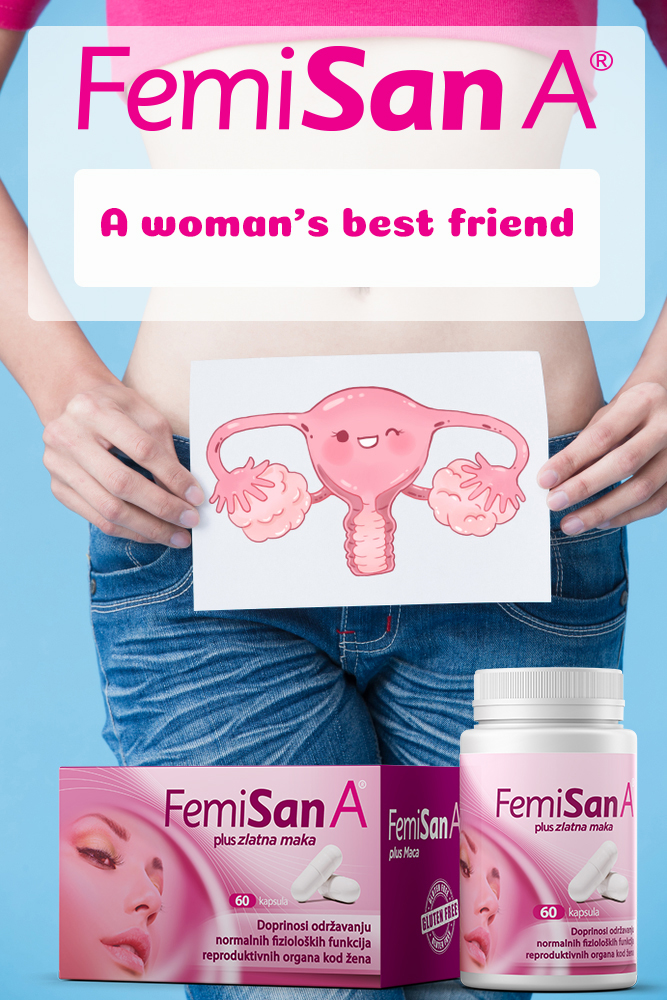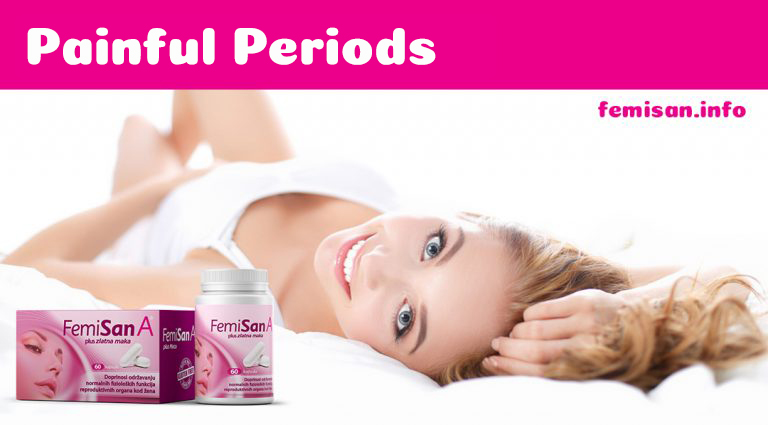We, women are all familiar with the moment when all we want is to curl up, press a cushion or a hot water bottle on our tummy and find occasional comfort in a piece of chocolate. Period pain is normal, and probably most women got more or less accustomed to it. The pain is usually accompanied with cramps, bloating, dizziness, headache, digestion problems, nausea, and mood changes. But why is that so?
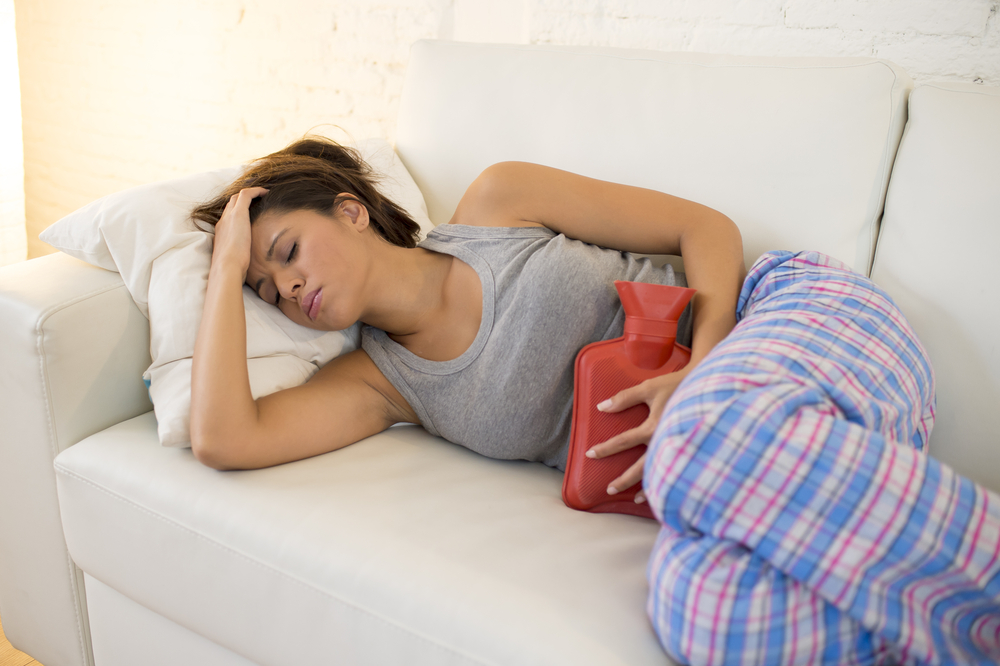
Several days before the onset of menstruation we begin to experience mild cramps, which increase on the day of menstruation and continue for the following couple of days. The pain can radiate to the thighs and lower back, while the cramps are the strongest in the lower abdomen. The cramps are caused by prostaglandins, hormones secreted by the endometrium – the uterus lining, with the intention to cause contractions, its shedding and regeneration, which is exactly the purpose of menstruation. The prostaglandins are also the ones to cause birth contractions and help the birth by pushing the baby out of the uterus. During the contractions, the uterine blood supply is cut off, leaving the organ without oxygen. The uterus is a muscle with the ability to contract and relax, and the contraction is experienced as pain.
Unusually strong menstrual cramps and pain can occur in young girls at the beginning of puberty, and when they are not due to other disorder, they are called primary dysmenorrhea. At later age, in mid-thirties, women can experience secondary dysmenorrhea – pain caused by a disorder, such as endometriosis, fibroids or an infection. Endometriosis is a condition that usually affects women in their thirties and forties, and occurs when the endometrial tissue travels into the pelvic area and begins growing on the ovaries, fallopian tubes, bowel and the tissues lining the pelvis. Unfortunately, this tissue ’remembers’ that it is supposed to peel off once the menstruation begins, causing unbearable pain.
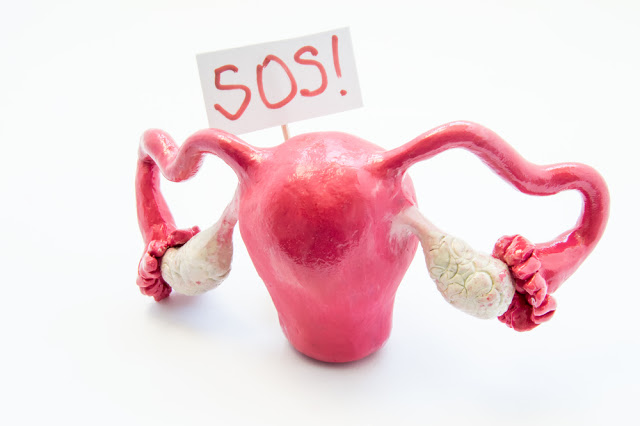
Uterine fibroids can also cause severe period pain, but also excessive bleeding. They are benign tumors which can inhabit and grow inside or on the outside of the uterine wall. Similarly, various infections can intensify period pain, as bacteria can lead to severe inflammation of the ovaries and fallopian tubes.
How can we relieve period pain?
- There are indications that women who often drink alcohol and smoke cigarettes suffer from incrased period pain. Alcohol reduces the liver’s capacity to detoxify estrogen and toxins. Therefore, it should be cut down, or even better, cut out completely.
- Heat can help. A hot water bottle or a blanket wrapped around the waist can cause the muscles to relax, and consequently, the cramps to be less intense.
- Exercising regularly will generally increase the blood flow, help balance the hormones and the menstrual cycle, and also reduce period pain.
- A well-balanced diet is important, and it is well known and proven that unhealthy food definitely affects the hormones. Fresh, organic fruit and vegetables, food rich in omega-3 fatty acids and magnesium can relieve menstrual pain. The fact that dark chocolate is rich in magnesium can explain our cravings.
- If the pain is unbearable, a doctor can prescribe a pain killer, but it is more important to determine the cause of pain. In case of disorders such as endometriosis or fibroids, it is important to react immediately to prevent them from spreading.
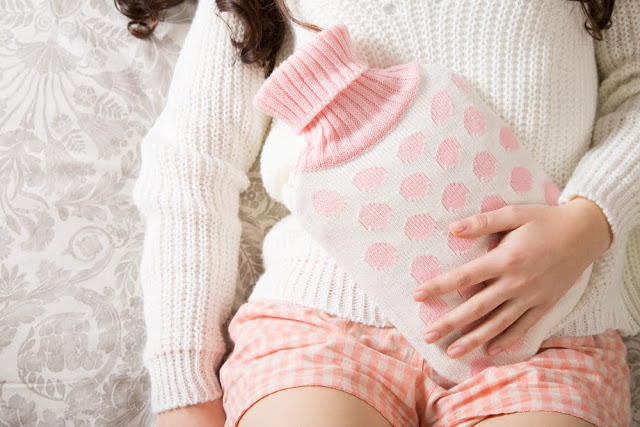
Doctors usually prescribe contraceptives in order to regulate the menstrual cycle, which can help while the pill is being taken. However, there is a natural solution that has been helping women since the ancient times: medicinal herbs. Lady’s mantle is famous for relieving pre-menstrual symptoms, painful periods and disorders such as endometriosis, adenomyosis, uterine fibroids and infections. It is excellent when combined with yarrow, the famous spasmolytic. The unpleasant bloating before and at the beginning of the period is relieved by marigold, as it can eliminate water retention.
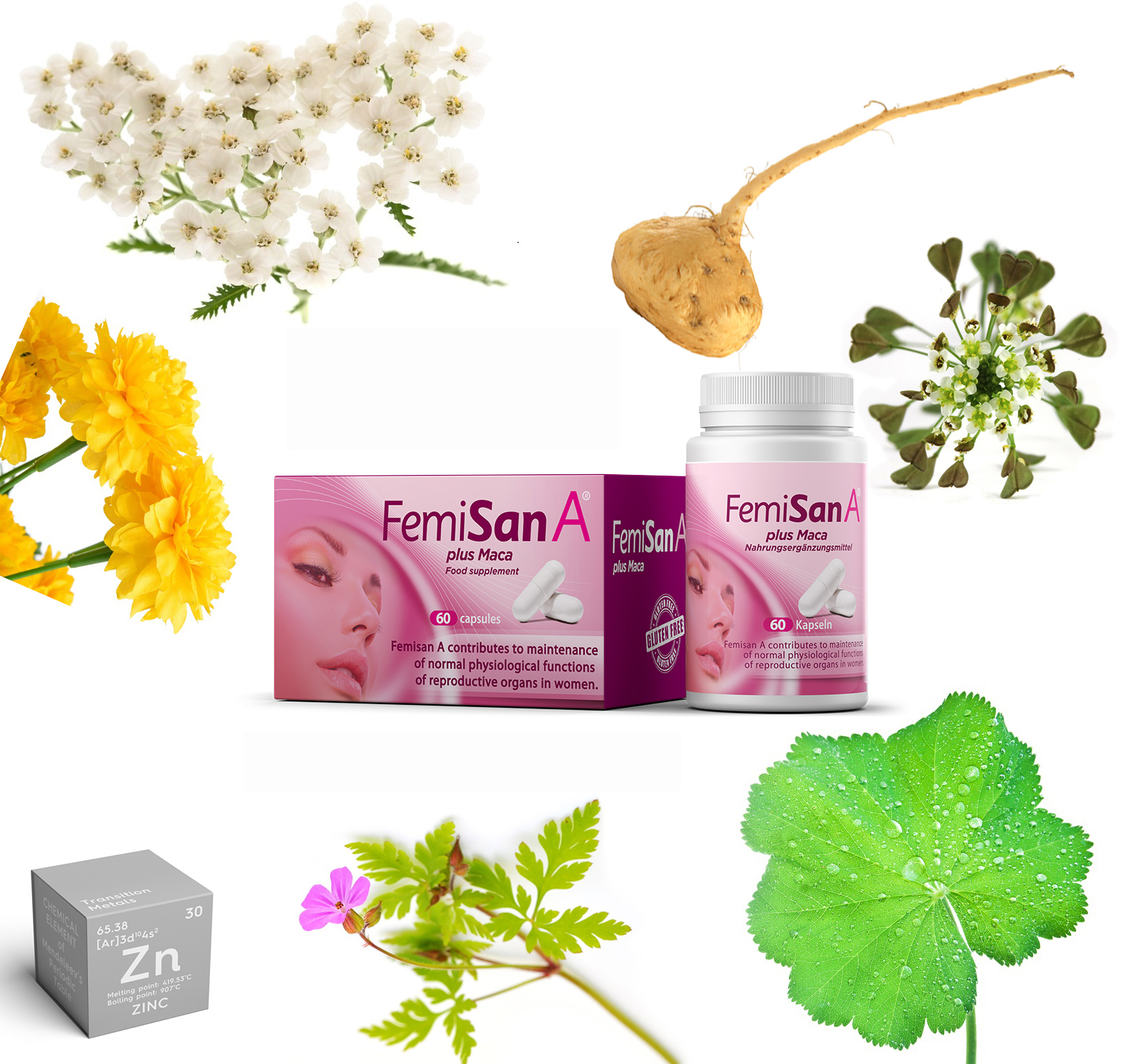
Herb Robert can also reduce swelling and soothe the symptoms of PMS, but it also works as a mild sedative. Crane’s bill can reduce excessive bleeding, while golden maca is the mother of all medicinal herbs. Maca fortifies immunity, elevates energy levels and balances hormones, but can also soothe period symptoms, boost fertility and even help at the onset of menopause. If we add zinc to this super-herbal blend, which regulates metabolism, gene activity, normal cell division, boosts immunity, hormone balance and fertility, we get Femisan A plus Maca Capsules. Traditional knowledge is enhanced by modern science in this all-natural herbal preparation designed to help women overcome female disorders.
Hot water bottle, chocolate and – Femisan A!
